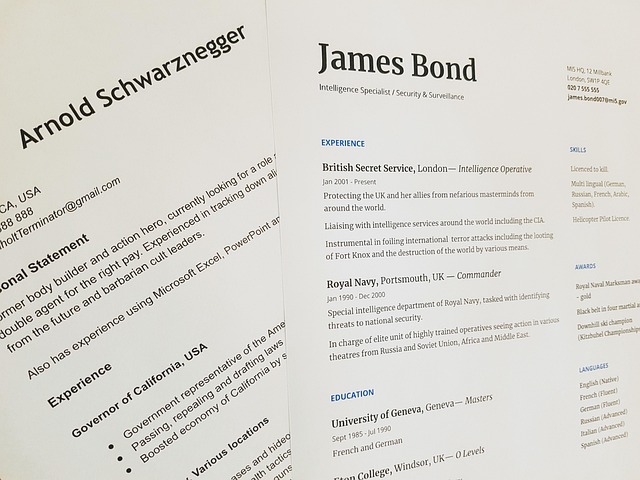How to Find Work in the Netherlands: Jobs, Visas, and Tips
Thinking of working in the Netherlands? Discover how to find job opportunities, apply for the right visa, and understand Dutch work culture. Whether you're an expat or EU citizen, this guide outlines the essential steps to start your career in the Netherlands successfully.

Best Job Opportunities for Foreigners in the Netherlands
The Dutch job market welcomes skilled international workers across various sectors. Technology remains the most promising field, with software developers, data scientists, and cybersecurity specialists in high demand. Engineering roles, particularly in renewable energy and infrastructure, offer excellent prospects given the Netherlands’ commitment to sustainability.
Healthcare professionals, including nurses, doctors, and medical researchers, find numerous opportunities due to an aging population and expanding healthcare sector. The financial services industry in Amsterdam creates openings for analysts, consultants, and fintech specialists. Additionally, the Netherlands’ status as a European logistics hub generates demand for supply chain managers and international trade professionals.
Creative industries also thrive, with opportunities in design, marketing, and digital media. Many multinational companies have European headquarters in the Netherlands, creating diverse roles for professionals with multilingual skills and international experience.
How to Get a Work Visa for the Netherlands
EU citizens can work freely in the Netherlands without additional permits. Non-EU nationals must navigate specific visa requirements based on their situation and qualifications.
The highly skilled migrant visa serves professionals earning above certain salary thresholds, typically around €38,000 annually for those under 30 and €47,000 for older applicants. This visa requires sponsorship from a recognized employer and allows family members to accompany the worker.
The European Blue Card targets highly qualified professionals with university degrees or extensive work experience. This option provides greater mobility within the EU and faster pathways to permanent residency.
Startup visa programs support entrepreneurs launching innovative businesses, while the orientation year visa allows recent graduates from top international universities to seek employment for one year. Each visa type has specific requirements, processing times, and documentation needs that applicants must carefully review.
In-Demand Jobs in the Netherlands for Expats
Current market trends indicate strong demand for technology professionals, particularly in artificial intelligence, machine learning, and software development. The Netherlands’ thriving fintech sector creates opportunities for blockchain developers, payment system specialists, and regulatory compliance experts.
Healthcare continues expanding, with particular needs for mental health professionals, elderly care specialists, and medical technology experts. The country’s focus on sustainable development drives demand for environmental engineers, renewable energy specialists, and sustainability consultants.
International business roles flourish in this globally connected economy, including positions in logistics, international sales, and cross-border project management. The creative and digital sectors seek user experience designers, digital marketers, and content creators with multilingual capabilities.
Research and development positions span various industries, from pharmaceutical companies to agricultural technology firms. The Netherlands’ strong educational system also creates opportunities for international educators and researchers.
Tips for Adjusting to Work Culture in the Netherlands
Dutch work culture emphasizes direct communication, work-life balance, and collaborative decision-making. Colleagues appreciate honesty and straightforward feedback, which may seem blunt to newcomers but reflects efficiency and transparency values.
Punctuality is crucial, and meetings typically start exactly on time. The Dutch prefer structured agendas and expect participants to contribute meaningfully to discussions. Hierarchy exists but remains relatively flat, with employees encouraged to share opinions regardless of seniority.
Work-life balance receives significant attention, with flexible working arrangements common and overtime generally discouraged. Many companies offer generous vacation policies and support remote work options.
Building professional relationships takes time, as Dutch colleagues often maintain clear boundaries between work and personal life initially. However, workplace relationships can develop into meaningful friendships through patience and respect for cultural preferences.
Steps to Legally Work in the Netherlands as a Foreigner
The legal process begins with securing a job offer from a Dutch employer willing to sponsor your visa application. Research companies in your field and apply through official channels, company websites, or reputable recruitment agencies.
Once you receive a job offer, your employer typically initiates the visa application process. Gather required documentation including educational certificates, work experience proof, and personal identification documents. All foreign documents usually require official translation and apostille certification.
Register with local authorities upon arrival, obtaining a BSN (Burgerservicenummer) social security number essential for employment, banking, and healthcare access. Open a Dutch bank account and arrange health insurance, which is mandatory for all residents.
Consider joining professional associations and networking groups relevant to your industry to build connections and stay informed about career opportunities and regulatory changes affecting your profession.
| Cost Category | Estimated Monthly Amount (EUR) | Description |
|---|---|---|
| Work Visa Application | €174-€345 | One-time visa processing fee |
| Health Insurance | €100-€150 | Mandatory basic coverage |
| Professional Registration | €50-€200 | Industry-specific licensing fees |
| Housing (Major Cities) | €800-€1,500 | Rental costs vary by location |
| Transportation | €50-€100 | Public transport or cycling |
Prices, rates, or cost estimates mentioned in this article are based on the latest available information but may change over time. Independent research is advised before making financial decisions.
Working in the Netherlands offers rewarding opportunities for skilled professionals willing to navigate the visa process and adapt to Dutch work culture. The country’s strong economy, excellent work-life balance, and international environment create an attractive destination for career development. Success depends on thorough preparation, understanding cultural expectations, and following proper legal procedures. While the process requires patience and attention to detail, the Netherlands provides a stable, prosperous environment for international professionals seeking meaningful career advancement in Europe.




